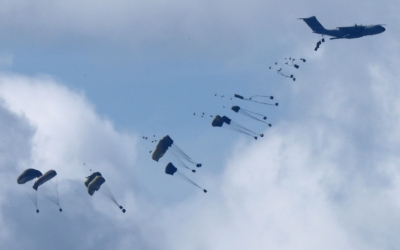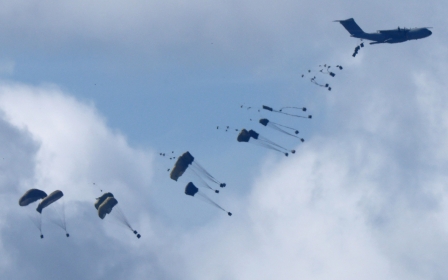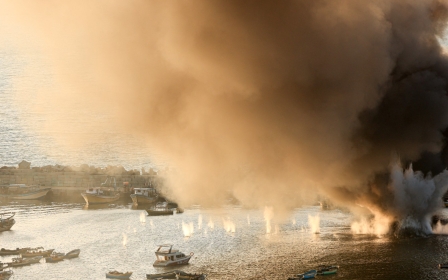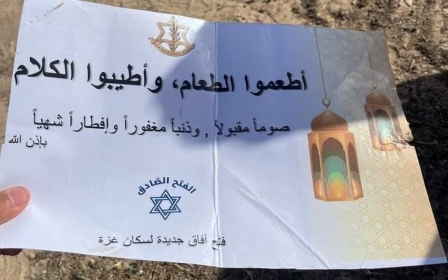War on Gaza: What Palestinians want if there's a ceasefire tomorrow
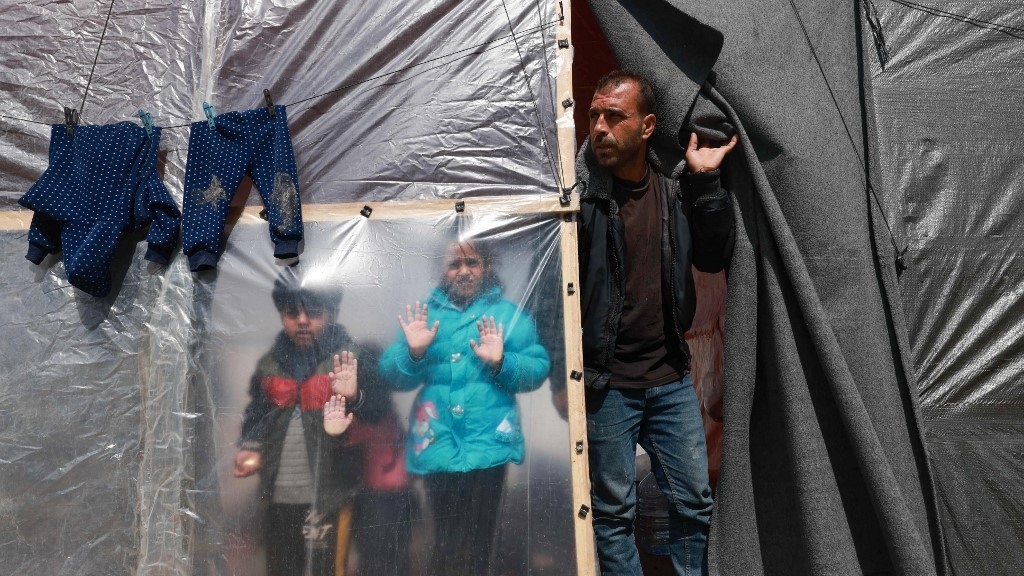
Palestinians in Gaza are desperate to see the end of hostilities there, particularly ahead of Ramadan, the holy month of fasting that starts this year on 10 March.
Yet even as they pray for an easing of their present plight, Israeli Prime Minister Benjamin Netanyahu recently shared a vision that would further dispossess Palestinians and further deprive them of their rights.
Middle East Eye asked survivors in embattled Gaza about what they hoped for after the war. Most had given it little thought, saying that that day still seems far away. In the meantime, they are taking things one day at a time.
"I hope for the best, which is the announcement of an independent Palestinian state, but also expect the worst, which is blockade again, expansion of illegal settlements, and no meaningful steps to ensure the creation of a sovereign Palestinian state," aid worker Tarneem Hamad told MEE.
At the same time, "I expect the global community to rally behind Gaza, helping in rebuilding infrastructure, hospitals, schools, houses; providing humanitarian aid; and facilitating economic recovery," Hamad said.
New MEE newsletter: Jerusalem Dispatch
Sign up to get the latest insights and analysis on Israel-Palestine, alongside Turkey Unpacked and other MEE newsletters
The US has pushed the Ramallah-based Palestinian Authority (PA) to prepare to take charge of Gaza, replacing Hamas's de facto control of the Strip, after the war. PA Prime Minister Mohammed Shtayyeh and his government resigned in late February in a move towards kick-starting reforms to the authority, with the ultimate goal of establishing a unified post-war Palestinian state.
The United Nations continues to argue for a two-state solution as the only way to resolve the Israeli-Palestinian conflict, a concept backed by many western and regional countries. In reality, this option appeared dead long before 7 October, and that is even truer today. The far-right Israeli government has repeatedly rejected such calls.
Less consideration has been given as to what Gaza's population of more than two million people believe their future should look like after the war.
Palestinians in Gaza say they want the same thing as other people around the world: to be able to live with dignity.
The war has led to a humanitarian catastrophe in Gaza, where life was already enormously tough as a consequence of Israel's long-running and crippling siege.
The World Health Organisation estimates that between 70 and 80 percent of civilian infrastructure - including homes, hospitals, schools, and water and sanitation facilities - has been destroyed or severely damaged in Israel's bombardment since 7 October.
A recent UN report suggests that, if the fighting were to end immediately and reconstruction efforts started right away, it would take until 2092 to restore Gaza's pre-war GDP.
'Israel has left nothing'
Ghada Alsaftawi, a 26-year-old mother of three, said her children are her primary concern. She has two boys, five and seven years old, and a nine-month-old baby.
Her eldest children "will always remember" the war, she told MEE. "My youngest ... won't remember, but I will remember that he lived more than half of his life in a war so far. I will remember that his nursery room was bombed, and I could not even cuddle with him as he sleeps peacefully in my arms.
"As terrifying as it sounds, if we stay alive, we will leave Gaza. I'm not sure where to, but Israel has left nothing for our children,” Alsaftawi said. "Their school was bombed, our house was bombed. My heart, though, will forever remain in Gaza. The idea of leaving Gaza feels like betrayal, but I have my children's future to [bear in mind].
"The world has failed us, so I know at least my children will have some basic rights protected as soon as they cross the borders to the outside world."
Hassan Selmi, a 30-year-old journalist, told MEE that his work had forced him to leave his family, who have been stranded in northern Gaza since the war broke out last October.
"As soon as the war ends, I want to see my family. I want to fill the water tanks and get them food," he said. "I also want to get married. I feel like I want to give my family a reason to celebrate and be happy.
"Because of my work, I understand the degree of destruction in Gaza. It will take decades for Gaza to become inhabitable again. I would like to leave Gaza until it is rebuilt. Gaza is no longer fit for human life."
As Ramadan approaches, there have been several reports of people dying from starvation. Palestinians in Gaza wake up each day not knowing whether they will live to celebrate the holy month.
"I promised my mum to cook them iftar [the fast-breaking evening meal] every day in Ramadan if the war ends, even if we end up living in tents in our destroyed neighbourhood," Selmi said. "That is, if none of us dies by then."
Hamad said she had not even absorbed the reality that Ramadan was approaching under the present circumstances, but she was "living on the brink of hope that a ceasefire can be reached" before the holy month.
'I just want a normal life'
Mustafa Ali, 26, who is stranded with the rest of the family in the north of Gaza, said the family has been torn apart since the war as they have been staying in different places to avoid being bombed in one house.
"I cannot think of what I want after the war other than meeting up with the rest of the family," he told MEE.
"I really just want a normal life. I want to sleep in a bed. I want to sit on a sofa and watch a film and laugh again. I want to have coffee when I wake up in the morning.
"I am not expecting anything from the world other than rebuilding Gaza. We will still be occupied and under blockade," he said.
Ali added that he is ready to sleep in a tent t the site of his Israeli-destroyed home until he has the opportunity to rebuild it.
Meanwhile, Sama Hamoud, 37, said she will stay in her parents' home after the war, if it is still intact. Her own house has been destroyed in an Israeli strike, and she is hoping to rebuild it.
"If the war ends during Ramadan, I want to make my family nice meals for iftar and just sit together without the stress this war has brought onto us."
Middle East Eye delivers independent and unrivalled coverage and analysis of the Middle East, North Africa and beyond. To learn more about republishing this content and the associated fees, please fill out this form. More about MEE can be found here.


